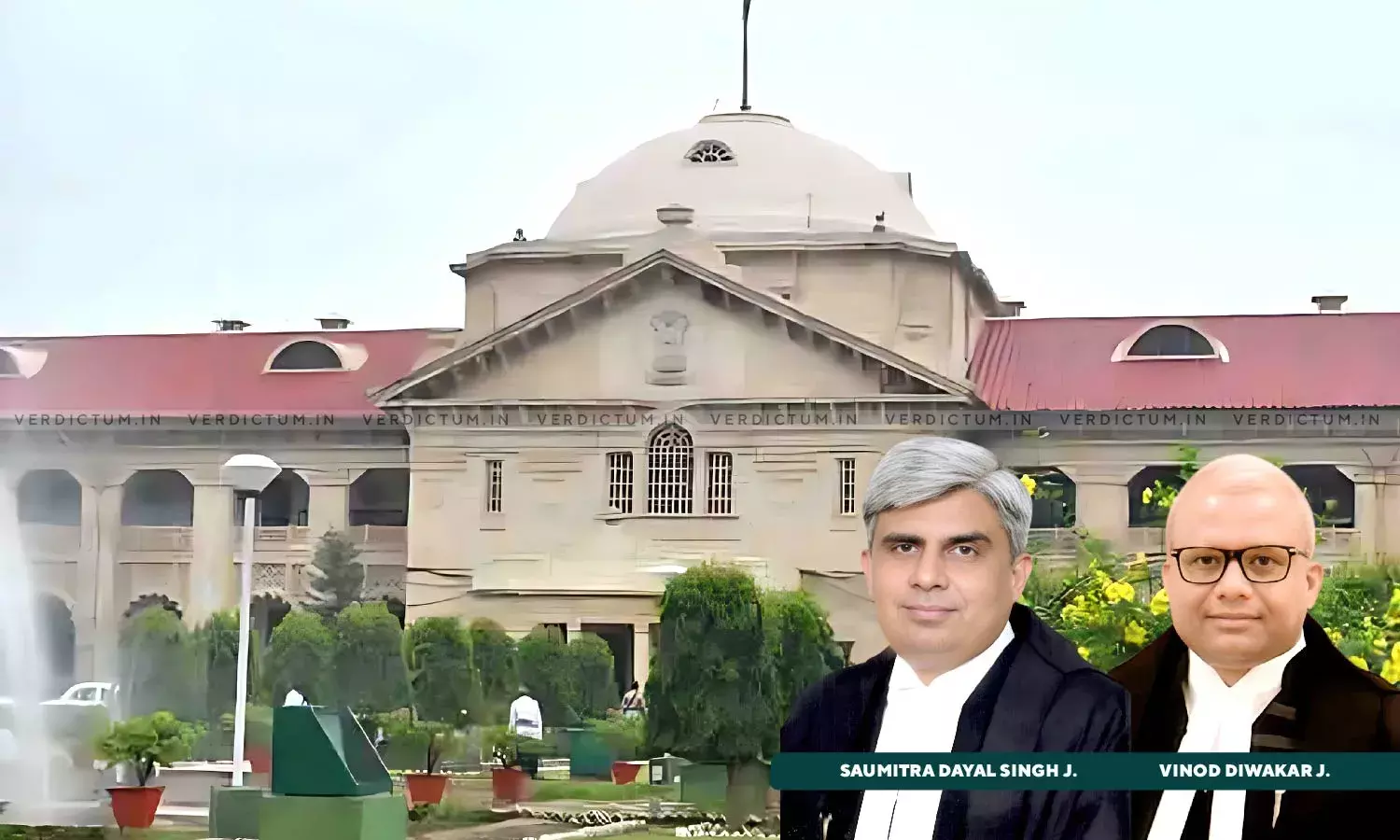Compassionate Appointment Cannot Be Granted Retrospectively To Deceased Employee's Family: Allahabad High Court

The Allahabad High Court has set aside an order of a Single Judge whereby the Insurance Company was directed to consider the claim of the deceased employee's wife, even when the employee expired prior to the cut-off date of the compassionate employment scheme and held that compassionate appointment cannot be awarded retrospectively to the family of the deceased employee if no such scheme was in place at the time of the employee's demise.
The Division Bench of Justice Saumitra Dayal Singh and Justice Vinod Diwakar noted,
“on the date of occurrence of the death of Sri Surendra Kumar Agarwal, there did not exist any scheme for grant of compassionate appointment. On that date, there existed a scheme to provide Ex-gratia payment to the family of the deceased-employee.”
The Bench placed reliance on catena of judgments wherein it was observed that, "...However, in case the benefits under the modified scheme are larger than the existing scheme prevailing on the date of death of the employee or on the date of moving of the application, such benefits cannot be granted to the dependent of a deceased employee, inasmuch as, the scheme of compassionate appointment is applied in perspective manner and no retrospective effect can be given for the purposes of consideration of even pending claim of a dependent of a deceased.”
The petitioner's husband was employed as an Assistant at the Oriental Insurance Company Ltd. He passed away while in service on September 06, 2014. At the time of his death, a scheme was in place to provide ex-gratia payments to the families of deceased employees. The previously existing Scheme for Compassionate Appointment had been discontinued since June 01, 2002, but it was reintroduced on August 07, 2014 by the Ministry of Finance, Government of India. This reintroduced scheme was applicable only to deaths occurring on or after November 01, 2014, as outlined in Clause 8 of the scheme.
On December 12, 2014, the petitioner submitted an application for compassionate appointment. However, her application was rejected based on the fact that her husband's death had occurred prior to the specified cut-off date. Subsequently, the petitioner filed a writ petition before the High Court. In response, the Single Judge directed the Insurance Company to review the petitioner's claim and disregarded the specified cut-off date. Dissatisfied with this decision, the Insurance Company filed a Special Appeal challenging the ruling of the Single Judge.
Advocate Amaresh Sinha appeared for the Appellant and Advocate Vijay Prakash Jaiswal appeared for the Respondent.
The appellant-respondent's arguments were accepted by the Court, which concluded that the cut-off date specified in the scheme was valid and should be followed for determining eligibility. The Court emphasized that compassionate appointment is an exception to the rule of equality in employment and should be considered strictly according to the applicable scheme.
“In the present facts, the Scheme for Compassionate Appointment clearly provides that that exception to the rule of equality in employment may be granted only in deserving cases, where death may occur on or after 1.11.2014. Therefore, in the first place, it never became open to the learned single-judge to confer any right to claim compassionate appointment on any person who may not have been eligible owing to that stipulation of the cut-off date.”
The Court further observed that as there was no challenge made against Clause 8 of the Scheme, it was firmly established in legal precedent that compassionate appointment is not an inherent fundamental right. Rather, it is an exception to the fundamental right of employment equality and it should be interpreted strictly according to the provisions of the scheme that created it. Thus, it further never became open to the learned single-judge, either to consider or to read that cut-off date was arbitrary.
“in the absence of any challenge raised to the validity of Clause-8 of the Scheme for Grant of Compassionate Appointment, first introduced with effect from 1.11.2014, it further never became open to the learned single-judge, either to consider or to read that cut-off date was arbitrary. Before such conclusion may have been drawn, there must have existed a direct challenge raised to the cut-off date prescribed by the Scheme for Grant of Compassionate Appointment.”
Accordingly, the appeal was allowed by the Court.
Cause Title: Oriental Insurance Company Limited v. Priyanka Agarwal
Click here to read/download the Order


